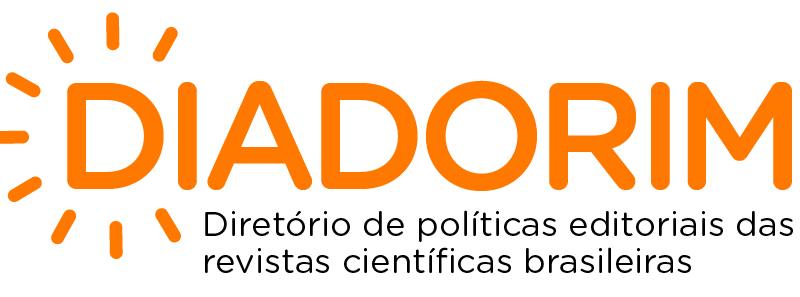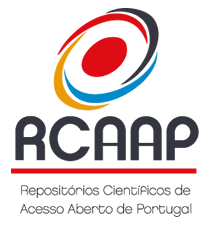Introduction to the R package Ordinal for sociolinguistic evaluation analyzes
DOI:
https://doi.org/10.5433/2237-4876.2023v26n3p115-128Keywords:
Ordinal, Social evaluation, SociolinguisticsAbstract
This article introduces the Ordinal package (CHRISTENSEN, 2022) for the analysis of social evaluation tests, highlighting its contributions to sociolinguistic research. Evaluation studies have the potential to generate data of very different natures, since there is great variability in methodological procedures. The focus of this work is on ordinal data, whose levels establish a hierarchical relationship (for example, A>B>C). To illustrate the analysis, we used the corpus of Souza Guerreiro (2023), which investigates the evaluation of speakers from Rio de Janeiro in relation to the phenomenon of pretonic vowel raising. The results indicate that the participants tend to elect elementary school to the speaker who produces a raised vowel in syllable ending in rhotic. On the other hand, when syllables ends in sibilant, the tendency is to attribute secondary education to the speaker. The main advantages of the Ordinal package identified in the analysis were: there is no limitation of levels of the dependent variable; the model predictions are produced in a mathematically adequate way to the ordinal nature of the data and the model output allows to visualize, in a scalar way, the effect of independent variables on the levels of the dependent variable.
Downloads
References
AVELHEDA, A. C. C. O alteamento das vogais médias pretônicas no município de Nova Iguaçu: análises sociolinguística e acústica. Dissertação (Mestrado em Letras Vernáculas) – Faculdade de Letras, Universidade Federal do Rio de Janeiro, Rio de Janeiro, 2013.
BAAYEN, R. H. Analyzing linguistic data: a pratical introduction to Statistics using R. New York: Cambridge University Press, 2008. DOI: https://doi.org/10.1017/CBO9780511801686
BARLAZ, M. Ordinal logistic regression in R. Disponível em: https://marissabarlaz.github.io/portfolio/ols/. Acesso em: 27 maio 2023.
CHRISTENSEN, R. H. B. Ordinal: regression models for ordinal data. 2022. Pacote R versão 2019.12-10. Disponível em: https://CRAN.R-project.org/package=ordinal.
GARCIA, G. D. Data visualization and analysis in second language research. New York: Routledge, 2021. DOI: https://doi.org/10.4324/9781003032243
GODOY, M. Estatística para as ciências da linguagem. 2021 Disponível em: https://youtube.com/playlist?list=PLE4HwfVNrSWQwm_62G49CZTXi7dqMzsuC. Acesso em: 27 maio 2023.
GRIES, S. Th. Estatística com R para a Linguística: uma introdução prática. Belo Horizonte: FALE/UFMG, 2019.
JOHNSON, D. E. Getting off the GoldVarb Standard: introducing Rbrul for mixed-effects variable rule analysis. Language and Linguistics Compass, v. 3, n. 1, 2009. p. 359–383. DOI: https://doi.org/10.1111/j.1749-818X.2008.00108.x
LABOV, W. Principles of linguistic change: Social Factors. Massachusetts: Blackwell Publishers, 2001 [1966].
LABOV, W. Padrões sociolinguísticos. São Paulo: Parábola Editorial, 2008 [1972].
LAMBERT, W; LAMBERT, W. Psicologia Social. Trad. Dante Moreira Leite. Rio de Janeiro: Zahar, 1975.
SANKOFF, D.; TAGLIAMONTE, S. A.; SMITH, E. Goldvarb X: a variable rule application for Macintosh and Windows. Department of Linguistics, University of Toronto, 2005.
LEVSHINA, N. How to do Linguistics with R: data exploration and statistical analysis. Amsterdam: John Benjamins Publishing Company, 2015. DOI: https://doi.org/10.1075/z.195
LIMA JR., R. Análise quantitativa de dados em Linguística. 2021. Disponível em: https://youtube.com/playlist?list=PLzkA7H-mNfYhdbUe1e0FMpJDdLj1585zq. Acesso em: 27 maio 2023.
LIMA JR., R.; GARCIA, G. D.; ANGELE, B. Modelos de regressão para linguistas. 2020. Disponível em: https://ead.abralin.org/course/view.php?id=10. Acesso em: 27 maio 2023.
OUSHIRO, L. Identidade na pluralidade: avaliação, produção e percepção linguística na cidade de São Paulo. 2015. Tese (Doutorado em Letras) – Faculdade de Filosofia, Letras e Ciências Humanas, Universidade de São Paulo, São Paulo, 2015.
OUSHIRO, L. Introdução à estatística com R. 2021. Disponível em: https://ead.abralin.org/course/view.php?id=26. Acesso em: 27 maio 2023.
OUSHIRO, L. Introdução à estatística para linguistas. Campinas: Editora da Abralin, 2022. DOI: https://doi.org/10.25189/9788568990209
POSIT TEAM. RStudio: integrated development environment for R. Versão 2023.3.1.446. Boston, MA: Posit Software, PBC, 2023. Disponível em: http://www.posit.co/. Acesso em: 27 maio 2023.
R CORE TEAM. R: a language and environment for statistical computing. Versão 4.2.1. Vienna, Austria: R Foundation for Statistical Computing, 2022. Disponível em: https://www.R-project.org/. Acesso em: 27 maio 2023.
ROUSSEAU, P.; SANKOFF, D. Advances in variable rule methodology. In: ROUSSEAU, P.; SANKOFF, D. Linguistic variation: models and methods. New York: Academic Press. 1978. p. 57-69.
SOUZA GUERREIRO, S. C. Alteamento das vogais médias pretônicas no município do Rio de Janeiro: décadas de 70, 90 e 2010 / estudo de crenças e atitudes. 2017. Dissertação (Mestrado em Letras Vernáculas) – Faculdade de Letras, Universidade Federal do Rio de Janeiro, Rio de Janeiro, 2017. DOI: https://doi.org/10.17013/risti.23.90-102
SOUZA GUERREIRO, S. C. Avaliação subjetiva e indexação social do alteamento pretônico. 2023. Tese (Doutorado em Letras Vernáculas) – Faculdade de Letras, Universidade Federal do Rio de Janeiro, Rio de Janeiro, 2023.
WEINREICH, U.; LABOV, W.; HERZOG, M. Fundamentos empíricos para uma teoria da mudança linguística. São Paulo: Parábola Editorial, 2006 [1968].
WICKHAM, H. et al. Welcome to the tidyverse. Journal of Open Source Software, v. 4, n. 43, p. 1-1686, 2019. DOI: https://doi.org/10.21105/joss.01686
Downloads
Published
How to Cite
Issue
Section
License
Copyright (c) 2024 Silvia Carolina Gomes de Souza Guerreiro, Gabriel Sales, Eliete Figueira Batista da Silveira

This work is licensed under a Creative Commons Attribution-NonCommercial-NoDerivatives 4.0 International License.
This journal reserves the right to make, in the originals, normative, orthographic and grammatical modifications in order to maintain the standard language and the credibility of the publication. It will respect, however, the authors’ style of writing. Modifications, corrections and suggestions of conceptual order will be forwarded to the authors, if necessary. In these cases, the papers, once appropriate, should be submitted to a new appreciation. The final examinations will not be forwarded to the authors. Works published become property of Signum, being its total or partial reprint subject to an explicit authorization of the journal. In all subsequent quotes the original source of publication should be mentioned, in case, in Photographic Discourse. Opinions emitted by the authors are their exclusive responsibility.

















